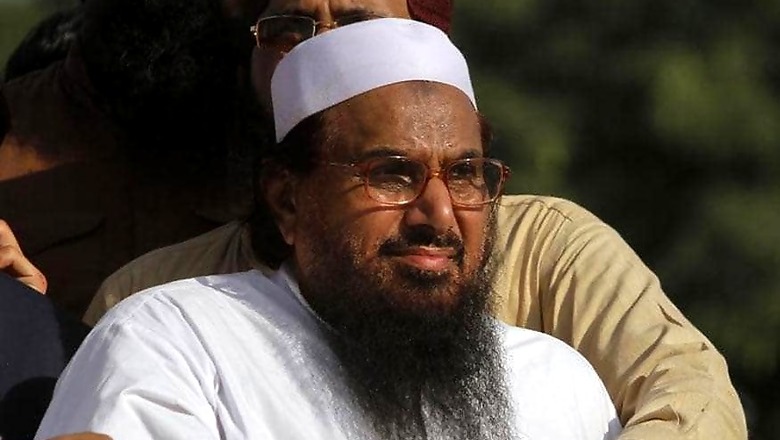
views
New Delhi: The United Nations has approved a request by Pakistan to allow Jamaat-ul-Dawa chief Hafiz Saeed to use his bank account for his family's basic monthly expenses.
In a letter dated August 15, the United Nations Security Council said that the request was approved after no objections were raised by the deadline of the same date.
"The Chair has the honour to refer to his draft letter to the Islamic Republic of Pakistan communicating the Committee's decision with respect to the intention of the Pakistani authorities to authourise certain expenditures to the benefit of Hafiz Muhammed Saeed (QDi. 263), Haji Muhammad Ashraf (QDi. 265) and Zafar Iqbal (QDi. 308) to cover basic expenses, as specified in the note verbale of the Islamic Republic of Pakistan," the letter by the UNSC Chair read.
Pakistan had earlier written a letter to the UN to release the expenditure on a request from Saeed to cover basic living expenses for himself and his family.
Pakistan's letter went on to elaborate that his bank account was made inaccessible after the UNSC's resolution to freeze his assets. Saeed has requested PKR 1,50,000 to cover the expenses.
The letter said that the mastermind behind 2008 Mumbai terror attack was an assistant professor of engineering and technology in Lahore.
The development comes after Pakistan claims to have taken strict actions against terrorism. The country's anti-terrorism department had booked and arrested Saeed and other top leaders of the JuD in May for terror funding.
However, India had dismissed his arrest as mere "drama", and accused Pakistan of supporting and harbouring terrorists.
On Wednesday, in an apparent reference to Pakistan, India had asserted at the UN Security Council Ministerial Debate that the global fight against terrorism should identify, hold accountable and take strong measures against states that finance and provide sanctuary to terrorists. Minister of State for External Affairs V Muraleedharan called upon the international community to expeditiously adopt the Comprehensive Convention on International Terrorism (CCIT) "without any further delay".
The CCIT is a proposed treaty, which intends to criminalise all forms of international terrorism and deny terrorists, their financiers and supporters access to funds, arms and safe havens.
"We believe that our fight against terrorism should not only seek to eliminate terrorists, and disrupt terror organisations and networks, but should also identify, hold accountable and take strong measures against states that encourage, support and finance terrorism, provide sanctuary to terrorists and terror groups," Muraleedharan said, without naming Pakistan.




















Comments
0 comment